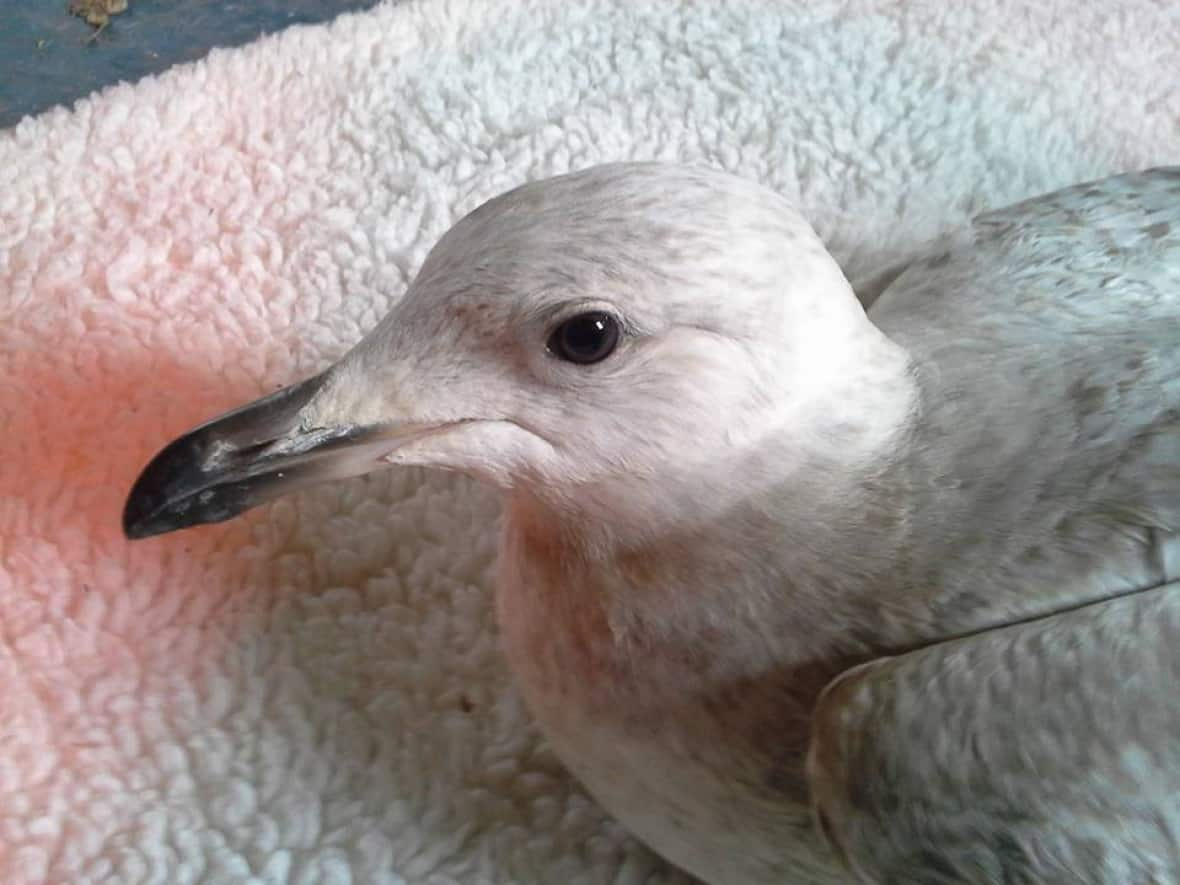Avian flu confirmed in gull off Makkovik coast, suspected in birds off Cartwright

The highly pathogenic avian influenza has been identified in more birds in Labrador, says the Canadian Wildlife Service.
According to the federal agency, a gull collected in April off the coast of Makkovik has been confirmed to have avian influenza, while two gulls collected off the coast of Cartwright in May and July are suspected to have the virus but further testing is needed.
The H5N1 virus is suspected to have killed thousands of birds in Newfoundland, especially in the Cape St. Mary's region. The virus was first detected in Newfoundland in December.
"We have sent another shipment to the provincial lab in Newfoundland, on Sept. 8, and those results are still pending," said Becky Whittam, manager of the wildlife and habitat assessment section for the Atlantic region of the Canadian Wildlife Service.
"We're still essentially waiting for processing of about 54 samples that were collected in August and September."

Fiona forced testing facility to close
Testing can take weeks to months as samples are first sent to a provincial lab in Newfoundland for examination. If they're deemed a high-priority species, testing swabs are sent to the Canadian Wildlife Health Cooperative on Prince Edward Island, she said.
Samples that come back from P.E.I. as suspected avian influenza are then sent to the national Canadian Food Inspection Agency Lab in Winnipeg, Whittam said. But testing in P.E.I. had been briefly delayed when the Island was hit by post-tropical storm Fiona, Whittam said.
In a statement, the regional director of the Canadian Wildlife Health Cooperative for the Atlantic Region said the University of Prince Edward Island was closed for the week after the storm.
Megan Jones said the closure was due to widespread power outages and to help keep people off the roads to allow infrastructure repair.
"There was no damage to the labs and things are back to normal this week," Jones said in the statement. She said the university's power was restored quickly and there isn't a significant testing backlog.
"All our essential equipment (such as freezers that house valuable samples) was on backup power regardless, so again, this was mostly a small delay."
Not all dead birds carry avian flu
While not all birds found dead in the wild are killed by the avian flu, Whittam said. people should be careful around dead birds or birds acting strangely and report them to the provincial Department of Fisheries, Forestry and Agriculture or the Canadian Wildlife Health Cooperative.
"Don't handle or eat birds that appear to be sick or that died from unknown causes," she said. "If you're hunting birds, cook them thoroughly to an internal temperature of approximately 74 degrees Celsius and follow all the safe food handling practices like washing your hands before and after."
Whittam said hunters should also keep their game separate from other food products and clear surfaces before and after cooking.
But songbirds such as robins are not known to be carrying the virus at this time and of all the Labrador samples, only three have come back positive, she said.
"We know that a second set of samples were collected in July, a couple of ring-billed gull, a herring gull, a common loon, and they've all yielded negative results," Whittam said. "There's other potential causes of death in wild birds like extreme weather conditions or an inability to find food."


